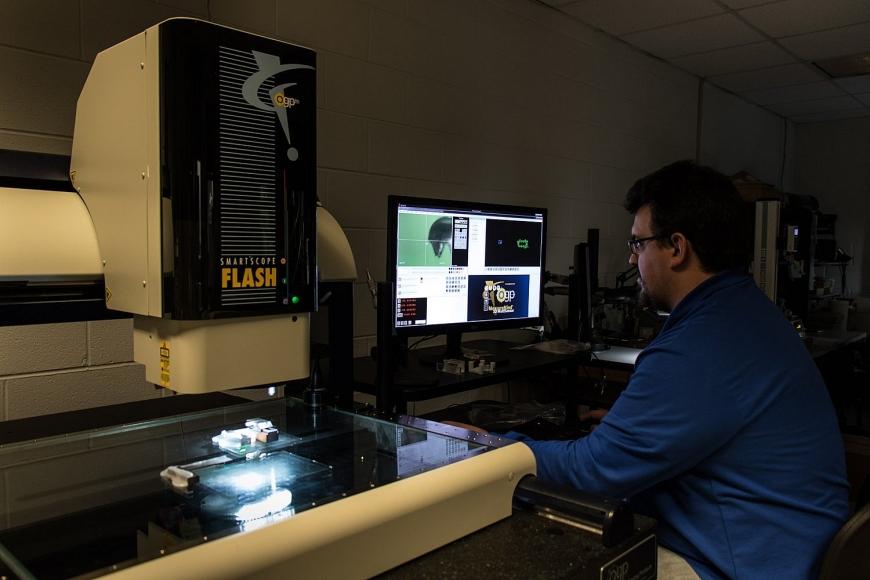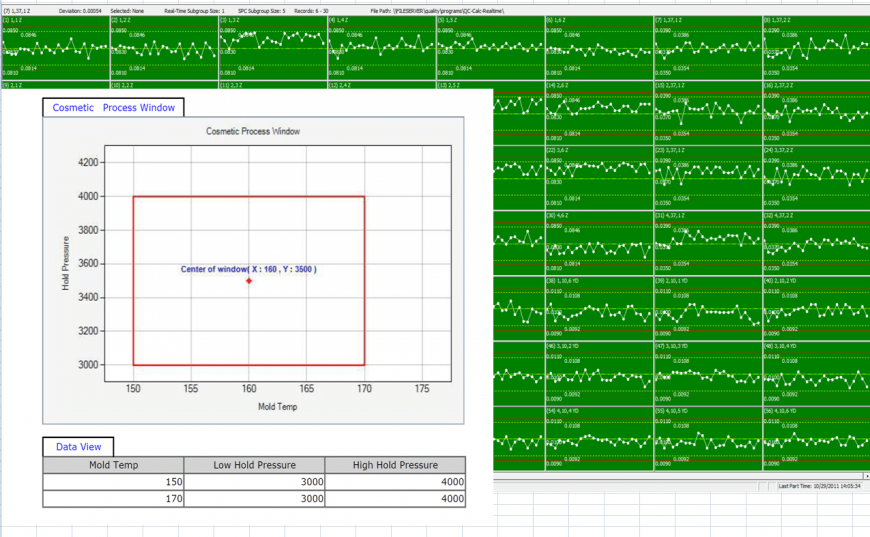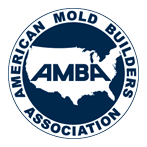Inspection and Quality Control Services

Inspection Services for the Most Demanding Applications
Matrix Plastic Products' Quality Assurance department provides customized inspection services to meet each customer's specific requirements.
We have the capacity to measure both steel tool components and final plastic parts in depth. The quality of our work is closely monitored and maintained throughout the entire manufacturing and production process.
All tools and molded parts are fully qualified by our Quality Assurance staff using state-of-the-art inspection equipment.
"Our wide range of Quality Assurance services affords us a comprehensive customer base. We have several clients who prefer to have us assume complete control of their project, from the initial product sampling analysis to production part certification of conformance. While others use us specifically for niche services like first article inspections, melt flow analysis, compression/tension testing or surface texture analysis." – Gary Johansson
Inspection reporting is available in a variety of formats, which can be customized for each unique project.
First Article Inspections (FAI)
A First Article Inspection provides objective evidence that our products have been manufactured to customer specifications. Essentially, every critical design characteristic called out on the part drawing is verified and recorded using our OGP multi-sensor metrology systems which are touch probe, vision and laser capable. Typically, one to three sample parts per cavity are randomly selected for this comprehensive evaluation method which can involve as many as 200 dimensions or more. Matrix performs FAIs for all new parts, and once we are in production, we monitor those critical-to-function features for the life of the project.
Process Validation (IQ-OQ-PQ)
Process Validation, or IQ-OQ-PQ, is a critical part of our quality assurance procedures. By challenging the molding process parameters, we create a Molding Area Diagram (MAD) showing the upper and lower limits for pressure and temperature that will yield parts within specifications. After we dial in to a process that will effectively control the quality of the product, a Gage R&R study confirms the accuracy, repeatability and reproducibility of our inspection fixture, instrument and inspector to prove that our measurement plan is sound and reliable. The entire Process Validation protocol is approved by the customer prior to kicking off part approval and production.

Capability Studies and SPC
Every process has inherent statistical variability which can be evaluated by statistical methods.. Our quality engineers can conduct a capability study to demonstrate the extent to which an established molding process is capable of producing parts within customer tolerance specifications. The critical statistical measurement output of the study is Cpk (the expression of predicted process capability) and Ppk (the confirmation of actual process capability.) By understanding this process variability, we can utilize various SPC tools to monitor and control the process and identify opportunities for continuous improvement. Our emphasis is on problem prevention vs. detection after the fact.
PPAP
The Production Part Approval Process (PPAP) establishes evidence that customer engineering design and specification requirements are clearly understood and fulfilled. We use this process to demonstrate that the established manufacturing process will consistently produce product meeting all customer specifications during the actual production run.
Tension Testing
Matrix performs tension testing, also called tensile strength testing, which subjects a sample part to a controlled tension until failure.
Moisture Analysis
Moisture content plays an important role in the performance of thermoplastic resins. Excessive moisture in material prior to injection molding can result in visual, dimensional and long-term performance defects. Implantable and bioabsorbable resins are particularly sensitive to moisture levels. Matrix performs moisture analysis testing to confirm that critical materials have been properly dried and are within the specified acceptable moisture range prior to processing.
_horizontal_white_536x129.png)

